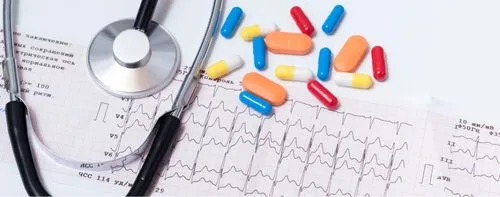Defective Products and Dangerous Drugs: Holding Companies Accountable
Have you or a loved one been injured by a defective product or medication? You may be entitled to compensation. Defective products and drugs can cause severe injuries and life-altering consequences. At Burnett Injury Group, our firm specializes in holding negligent manufacturers, distributors, and retailers accountable for the harm caused by their products. We understand the complexities of these cases and are committed to fighting for the rights of victims.

The Chain of Responsibility
Product liability claims and defective drug claims can be brought against various parties involved in the product’s journey from manufacturer to consumer. Determining liability can be complex, requiring a thorough investigation into the product’s history and the actions of each party involved.
Some parties that might hold responsibility include:
- Manufacturers:The companies that design and produce the product.
- Distributors: Entities that transport and store products before they reach retailers.
- Retailers: Stores that sell the product to consumers.
Types of Drug and Product Defects
There are several types of defects that can form the basis of a product liability claim:
- Manufacturing defects: These occur when a product is improperly constructed or assembled, deviating from the product’s overall design that makes it unreasonably dangerous.
- Design defects: This involves a flaw in the product’s overall design that makes it unreasonably dangerous.
- Marketing defects: Also known as failure to warm, this occurs when the manufacturer fails to adequately warn consumers about potential risks associated with the product.

Defective Product Claims
What is Product Liability?
Product liability is a legal theory that holds manufacturers, distributors, retailers, and others in the chain of distribution responsible for injuries caused by defective products. Essentially, it’s the idea that if a product is unsafe and causes harm, the party or parties responsible for putting it into the marketplace can be held accountable.
Proving Liability in a Defective Product Lawsuit
To establish liability in a defective product claim, it’s generally necessary to prove the following:
- The product was defective: This means the product was unreasonably dangerous when it left the manufacturer.
- The defect caused the injury: The plaintiff must demonstrate a causal link between the product defect and their injuries.
- The plaintiff suffered damages: This includes both economic damages (medical bills, lost wages) and non-economic damages (pain, suffering, and emotional distress).
Types of Product Liability
There are three primary theories of product liability:
- Negligence: This theory requires proving that the defendant owed a duty of care to the plaintiff, breached that duty, and the breach caused the plaintiff’s injuries.
- Strict liability: This theory holds the manufacturer or seller strictly liable for injuries caused by a defective product, regardless of fault.
- Breach of warranty: This theory focuses on whether the product lived up to express or implied warranties made by the manufacturer or seller.
Product Liability Damages
If successful, a product liability claim can result in compensation for various damages, including:
- Economic damages: Medical expenses, lost wages, property damage
- Non-economic damages: Pain and suffering, emotional distress, loss of consortium

Dealing with Defective Prescription Drugs and Medical Devices
Defective prescription drugs and medical devices can cause severe injuries and even death. These cases often involve complex legal and scientific issues, requiring specialized expertise. Common claims include:
- Failure to warn: Drug manufacturers may be liable for failing to adequately warn about potential side effects.
- Design defects: This can occur when a drug or device is inherently dangerous due to its design.
- Manufacturing defects: Errors in the production process can lead to contaminated drugs or malfunctioning devices.
Seek Justice for Your Defective Product and Drug Injuries
If you or someone you know has been injured by a defective product or medication, time is of the essence. Our experienced personal injury attorneys at Burnett Injury Group can help you navigate the complex legal system and fight for the compensation you deserve. Contact us today for a free consultation at (443) 214-2600 or by completing our contact form here.
Have a Referral?
Speak with our experienced personal injury team to explore your options.

Practice Areas
If you or a loved one was injured, talk with our team today to learn more about how we can help you get the justice you deserve.
FAQs for Defective Products and Drugs
Find answers to common questions about injury law and the legal process.
Yes, if a drug manufacturer fails to warn about potential side effects or if the drug is inherently dangerous, you may have grounds for a lawsuit.
While not always required, having an experienced personal injury lawyer can help you efficiently navigate the lawsuit process to achieve a successful outcome.
Typically, the statute of limitations for defective product and drug cases in Maryland is three years. Each situation is unique, however, so contacting a law firm can help you understand the deadlines associated with your potential lawsuit.

